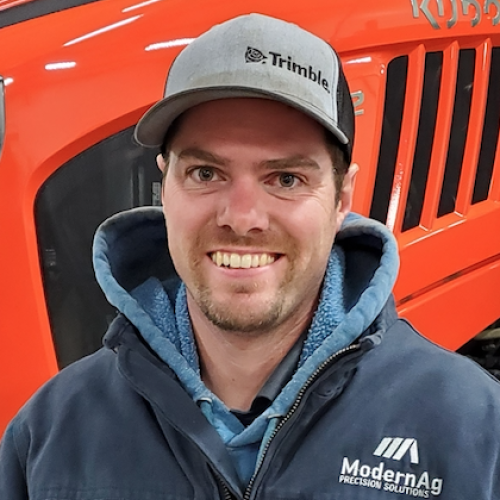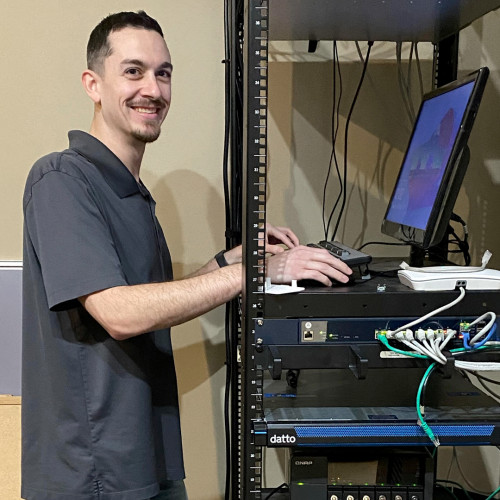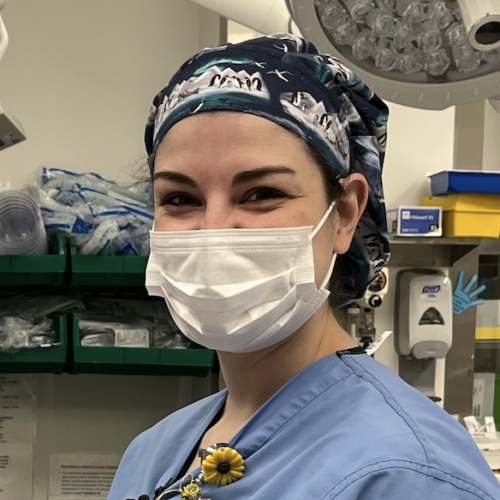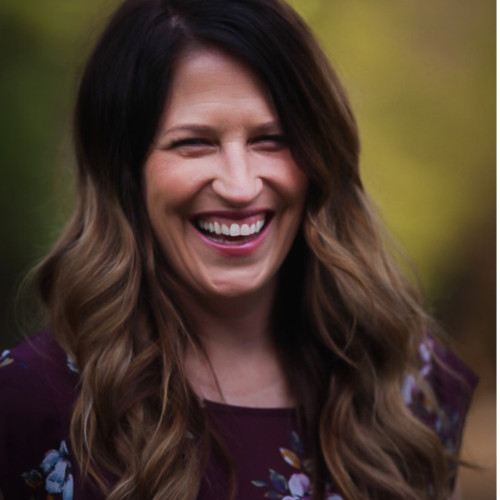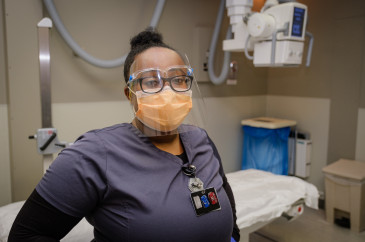
Ajala Anavberokhai
MRI Technologist
"When I was a child, I wanted to be the next Oprah. I loved watching her on TV and seeing the impact she made. I knew I wanted a job that could make a similar difference with people. Then when I got to high school, I really got interested in joining the military. I took a basic first aid course that taught everything you needed to know about first aid in survival situations like car accidents or fires. This class got me started thinking about a career in health care.
After high school, I spent six years as a combat medic in the United States Army Reserves. After completing my service, I attended Washburn University to earn my associate degree in radiologic technology. While I was in school, I gained 2000 hours of clinical experience working with patients at Stormont Vail. I was responsible for taking patient x-rays, including using portable machines to take images in a patient’s room or in the operating room. After I graduated, I was hired at Stormont as a radiology tech, and then was trained to be an MRI technologist, which is my job today.
Using the MRI (magnetic resonance imaging), I scan patients to help physicians diagnose diseases and injuries, plan surgeries and determine whether a mass or tumor is cancerous. We are responsible for the safety of all patients and staff that come through the MRI department. What we do isn’t without risk; I’m responsible for everyone who enters the MRI zone, to ensure that they don't have any unsafe implants or things in their pockets. Because MRI machines use strong magnets, it can make something as small as nail clippers shoot dangerously across the scanner room. A hospital bed can even be sucked into the scanner!
The best thing about my job is helping patients. While I’m always there to help figure out what’s going on, sometimes it's also my job to be a listening ear. I love that I learn something new every day — whether it is an easier way to do my job, a new medical disease or condition, or a new technology. Right now, I’m learning everything I can about MRI, but in the future, I want to learn other radiologic technologies like CTs, nuclear medicine or ultrasound."

